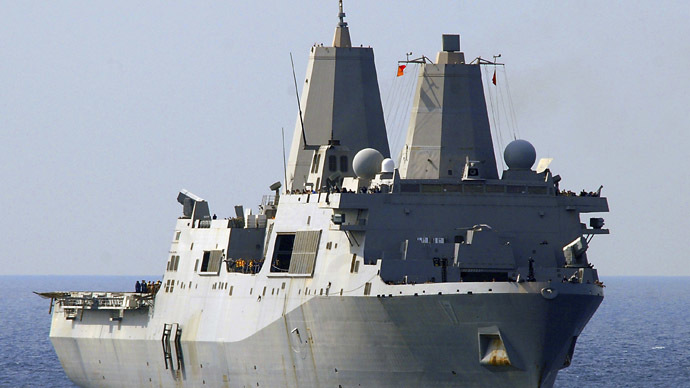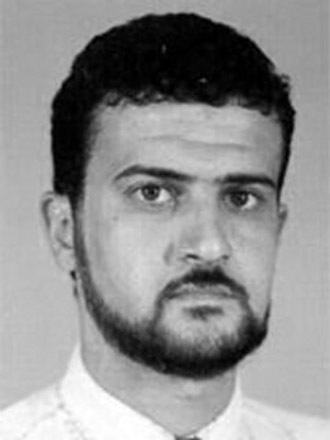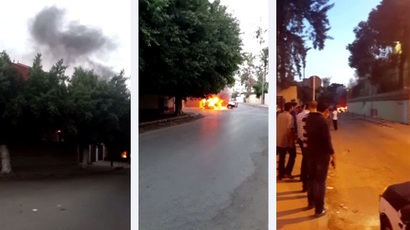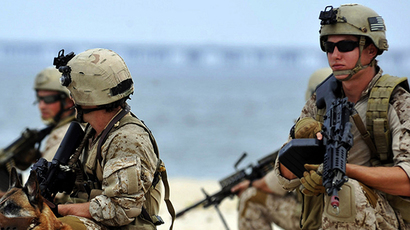US special team interrogating Libyan terror suspect on naval ship

A special US agency is interrogating the Al-Qaeda suspect who was “lawfully detained” in a raid in the Libyan capital of Tripoli, say officials. The suspect has been removed to a US naval ship in international waters where he faces questioning.
Nazih Abdul-Hamed Ruqai, known by his alias Abu Anas el-Liby, was
taken into custody during a covert operation on Saturday. Liby is
now being held aboard the USS San Antonio, where he is being
interrogated by the US High Value Detainee Group, an inter-agency
group led by the FBI, US officials told Reuters.
Liby has been indicted by a US Federal Court for his alleged role
in the East Africa bombing and plots to attack American troops.

The interrogation techniques used on Liby are governed by the Army Field Manual, reports the New York Times. The manual itself is based on the Geneva Conventions and as such prohibits the use of torture to interrogate a suspect. The rule book does, however, permit interrogators to threaten the suspect with severe legal consequences and “appeal to his emotions.”
Under the manual the detainee is also entitled to four hours of continuous sleep every 24 hours.
Following Liby’s interrogation it is likely that the US will seek
to extradite him to stand trial for his alleged role in the 1998
bombings of the US embassies in Kenya and Tanzania that left 224
civilians dead.
Liby’s detention on the Navy ship has raised some questions
regarding its legality, given that the Third Geneva Convention,
which applies to prisoners of war, only allows for them to be
detained “on premises located on land.”

The White House came under fire for the covert mission with allegations of kidnapping from the Libyan government. The Obama Administration mounted a defense, maintaining the operation was legal and stressing the US’ right to pursue terror suspects abroad.
“He is clearly Al-Qaeda and he is clearly wanted on
charges," White House spokesman Jay Carney told reporters
regarding Liby's case. "When we are able to, we prefer to
capture someone like Mr. al-Liby.”
Liby has a $5 million reward on his head and has been on
the FBI’s most wanted list since 2000 when he was indicted along
with 20 other al Qaeda suspects, including Osama Bin Laden.
The suspect’s son, Abdullah Ragye, told press that four cars
pulled up and men grabbed Liby and drove off with him on Saturday
in the Libyan capital of Tripoli. While the Libyan operation was
being executed, US forces carried out a raid on an Al-Shabaab
base in Somalia in a bid to apprehend alleged terrorist leader
Abdulkadir Mohamed Abdulkadir. There have been reports that a
militant was killed in the attack, although it remains unclear
whether it was Abdulkadir.
A Kenyan government intelligence document names him as the
coordinator of planned attacks, including a foiled plot targeting
Kenya's parliament building and the UN office in Nairobi, as well
as an Ethiopian restaurant patronized by Somali government
officials. US intelligence also connects him to deceased Al-Qaeda
operatives Harun Fazul and Saleh Nabhan.














